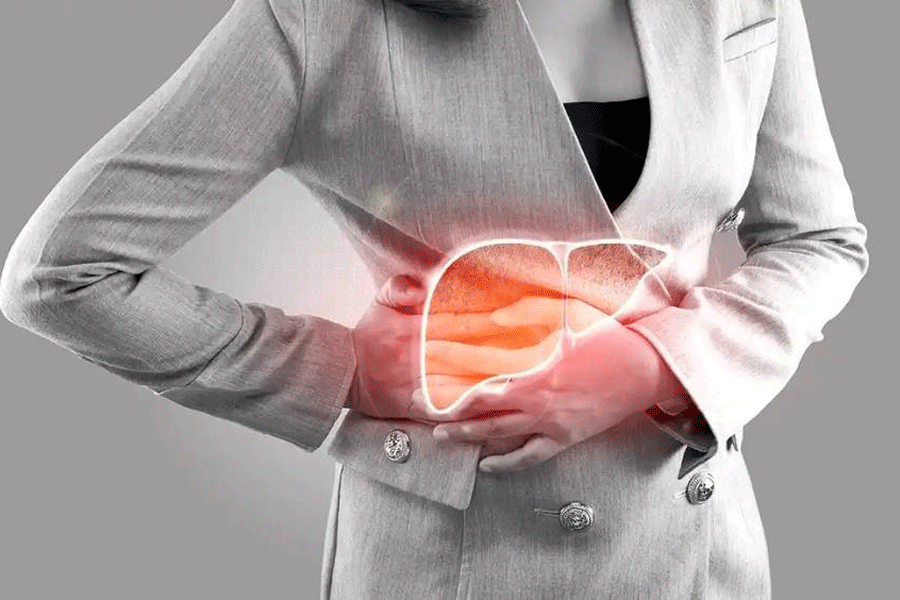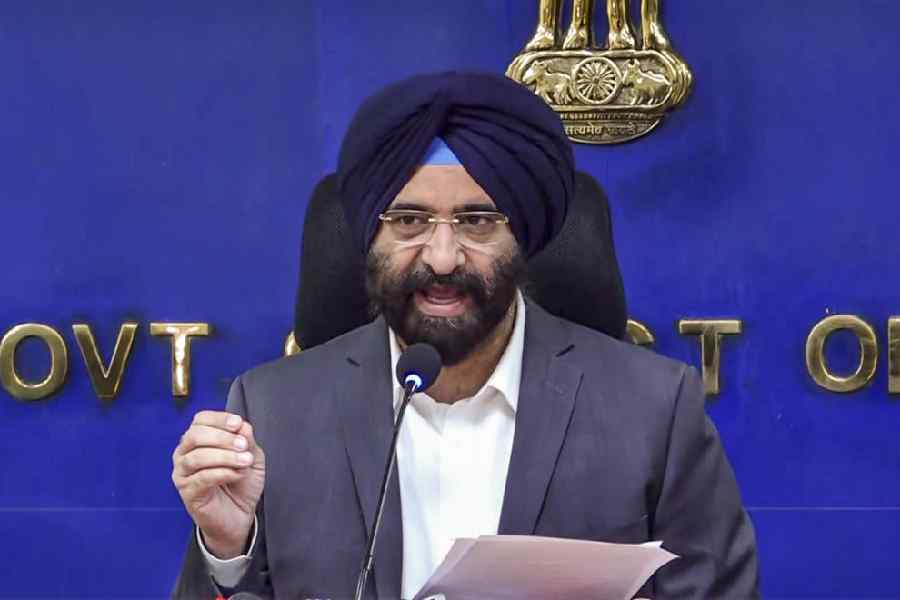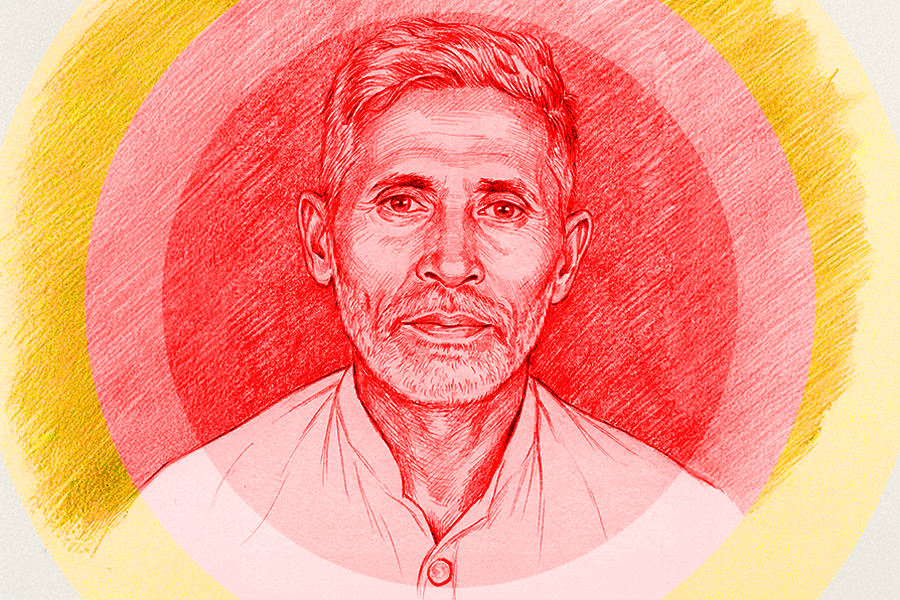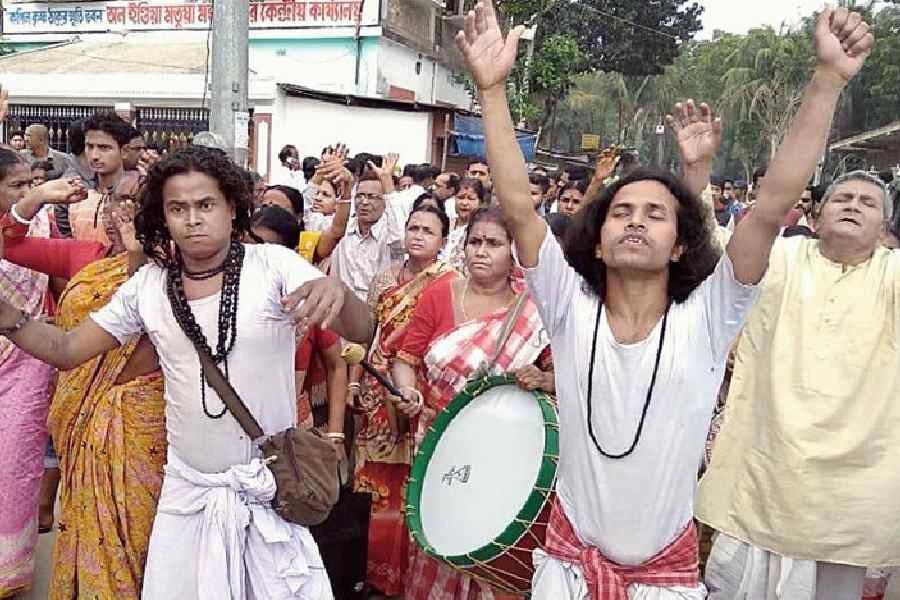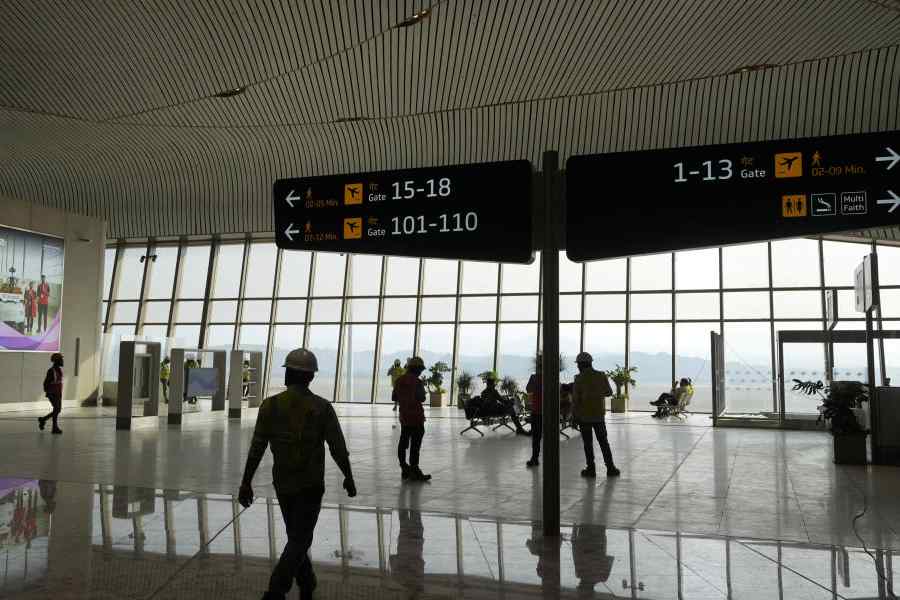The family of a seven-year-old girl, afflicted with a rare disease, is waiting for government funds that will enable them to buy medicines for her treatment.
The parents lost their elder son to the same rare disease — hereditary tyrosinemia type 1 (HT1) — in 2015.
The girl’s father, who runs a grocery store in their home in Birbhum’s Dubrajpur, makes about ₹5,000 a month. Her mother is a homemaker.
A doctor treating the girl said a medicine that can prevent the deterioration of her health condition will cost about ₹50,000 a month.
The girl’s growth has stunted and she looks like a two-year-old, said the doctor. “Early diagnosis helps in preventing degeneration. She is already seven-years-old. If the medication does not start quickly, the condition may deteriorate,” said Jashodhara Chaudhuri, an assistant professor of neuromedicine at NRS Medical College and Hospital.
“HT1 is a rare disease where the body cannot break down tyrosine (an amino acid) because of deficiency of an enzyme, FAH. As a result, tyrosine accumulates in the body. The accumulation of tyrosine is harmful and can lead to kidney and liver dysfunction,” said Chaudhuri.
“The accumulation of tyrosine can cause ricket in the child. There is also a high risk of liver cancer,” she added.
Santosh Gorain, the girl’s father told Metro that his daughter had ricket in both her legs. “She walks slowly. I make barely ₹5,000 a month. My son passed away with
the same disease in 2015,” said Gorain.
“My son used to have seizures. He was only two when he passed away,” said Gorain.
Last month, the girl’s family registered her name with the rare disease centre at SSKM Hospital. “She has been called for a check-up on Wednesday,” said Gorain.
SSKM Hospital is one of the eight designated centres of excellence across the country, and the only one in eastern India, for fund allocation and treatment of rare diseases.
The central government’s rare diseases policy includes a one-time grant of ₹50 lakh for children suffering from rare diseases.
The National Policy for Rare Diseases, 2021 mentions that “as the number of persons suffering from individual rare diseases is small, they do not constitute a significant market for drug manufacturers to develop and bring to market drugs for them.”
The government support becomes essential for their treatment, said doctors.
The national policy adds that “WHO defines rare disease as often debilitating lifelong disease or disorder with a prevalence of 1 or less, per 1,000 population.”
“I cannot afford the medicines and I am dependant on grants from the government,” Gorain said.
Emili Banerjee, a genetic counsellor, who is also treating the girl, said newborn screening is abysmally low in India but it can help detect a large number rare diseases within a few days of a baby’s birth.
“This girl was diagnosed with the disease quite late. There has been some damage, but we have to prevent any further damage and that is possible with the medicines,” said Banerjee.
Doctors said the medication she needs will cost about ₹50,000 every month.
She also needs “highly-restricted diet and supplements”, which too are very costly, said Banerjee.
In Bengal, about 750 children are registered with rare diseases nodal centre at SSKM Hospital.

